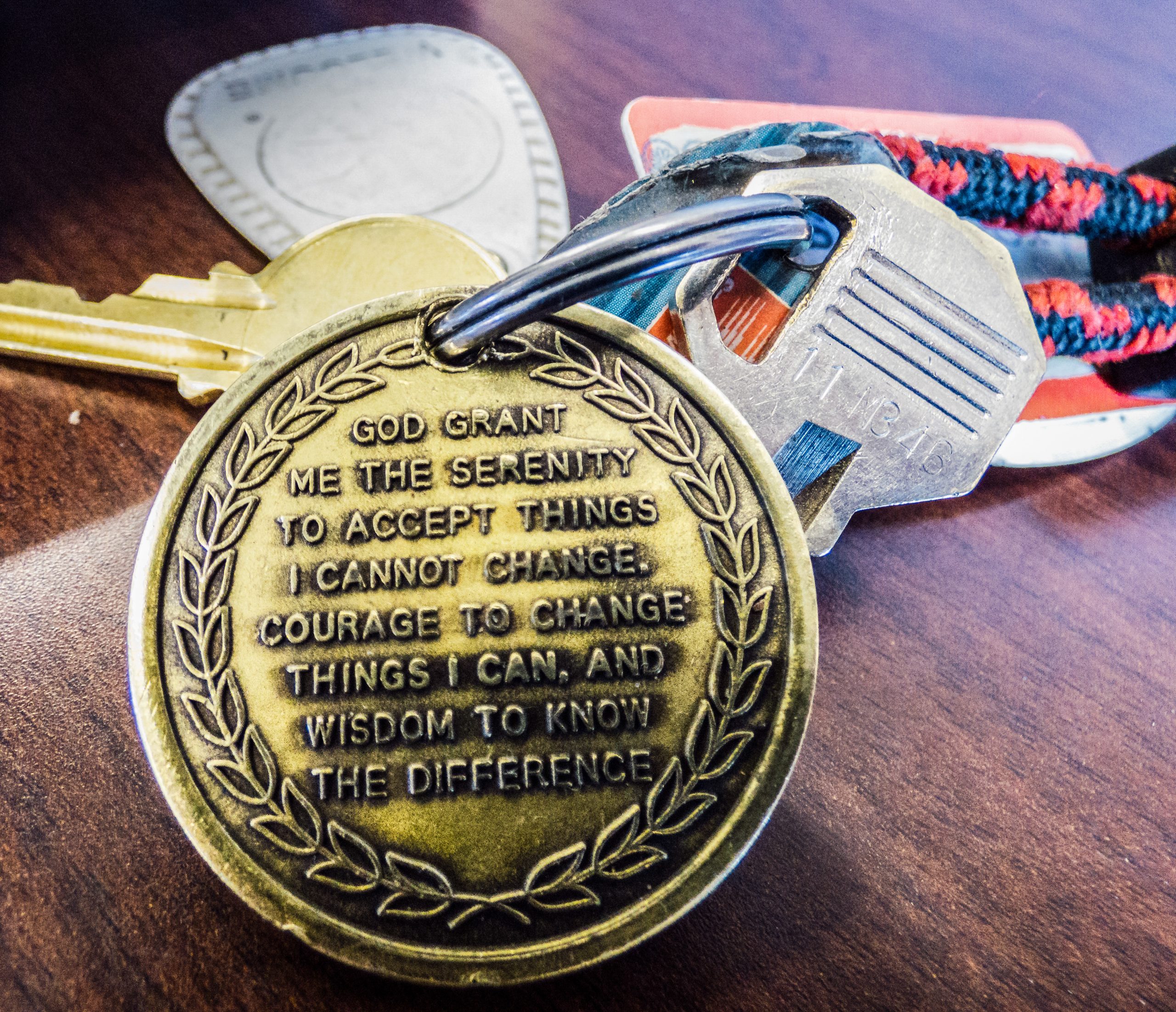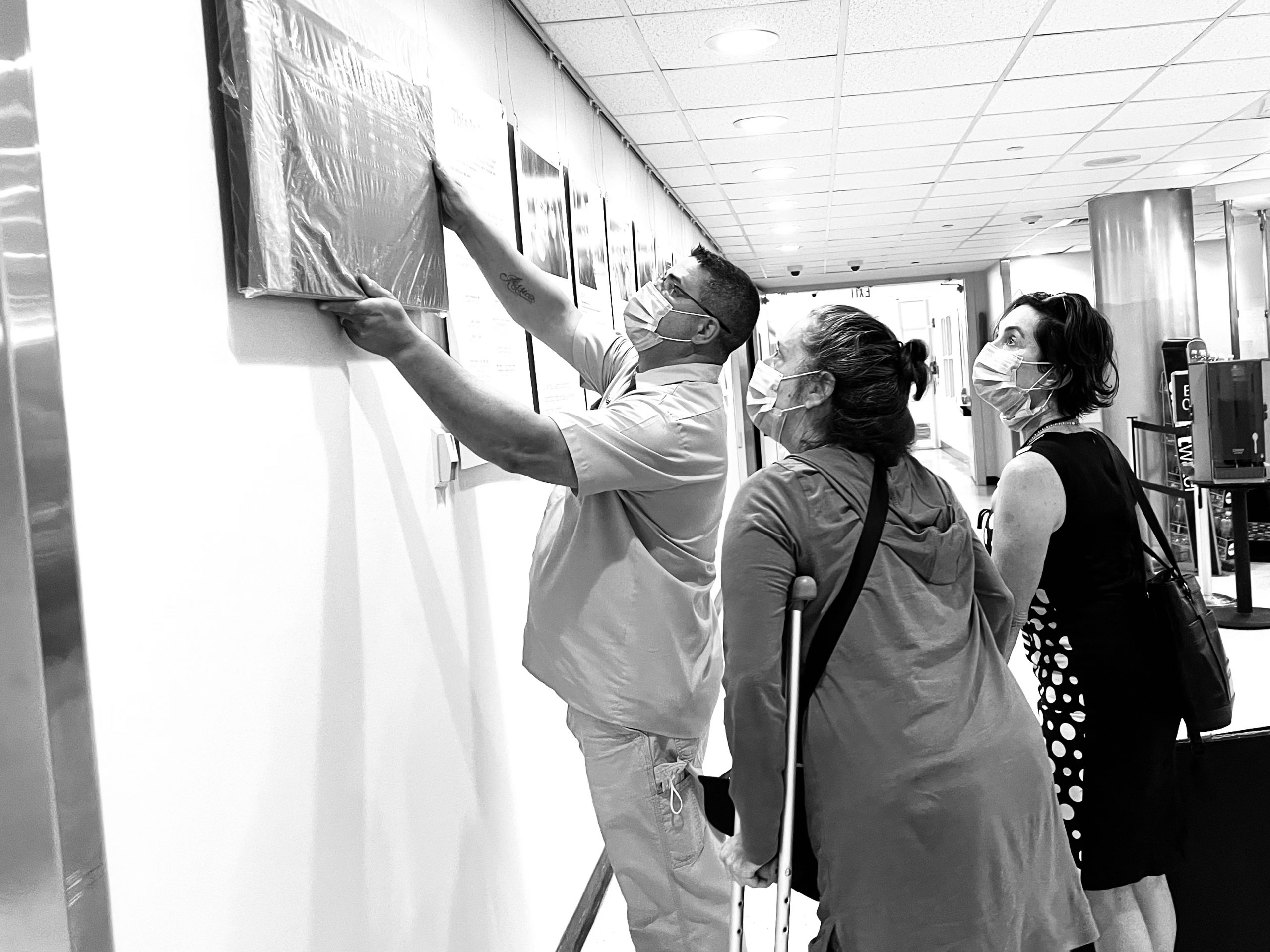"I want a better life. I am ready to be proud of myself."
Here the artist photographs a keychain with a collection of pendants. In the foreground, and the main focus of the image, is a metallic coin or chip embossed with the Serenity Prayer which has been converted into a pendant. This prayer, originally written by American theologian Reinhold Niebuhr, and reads:
God, grant me the serenity to accept the things I cannot change,
courage to change the things I can,
and wisdom to know the difference.
While originally written in 1932-1933, the verse became popularized by Alcoholics Anonymous in 1941 when a staff member discovered in the In Memoriam column of an early June edition of the New York Herald Tribune. This mantra became a hallmark of AA and eventually was adopted by other 12 step programs. While the origins of the chip/coin tradition are not well known, and the use of chips is optional and not mandated by Alcoholics Anonymous, tradition dictates that tokens be given at one, three, six, and nine months and then yearly.

OFF THE GRID Collection, 2016. Digital Photograph. ©OFF THE GRID. All rights reserved.
Substance use disorders, especially the misuse of opiates, have become major topics of national interest in the last few years. Usage of substances, including alcohol and narcotics, has also increased as a result of the COVID-19 pandemic with the US seeing the highest number of fatal drug overdoses on record in 2020 (source). While rehab facilities are nothing new, they were typically costly requiring large out-of-pocket expenses. However, the Affordable Care Act changed that by requiring coverage for substance use disorders (source). While the coverage of addiction services has helped may seek care, it has also provided an unforeseen opportunity for unscrupulous institutions and individuals to exploit patients and their families. A commonly seen scam is a patient brokering scheme. In this scam the broker receives a commission for enrolling a patient in a treatment facility, usually in an idyllic location like Florida or southern California. These kickbacks can range from $500 to $5000, incentivizing the broker to enroll as many people as possible, in many cases though offering a share of the prospective profits to the patient in the form of free airfare or coverage of their insurance payments.
Here is how the scheme works: the broker takes the patient's insurance information, or sign them up for high level coverage. In a recent Massachusetts case involving a broker and insurance agent, patients were falsely listed as recently moving in from out of state, allowing them to be enrolled in insurance plans outside of the typical open enrollment period, notably without the patient's consent. The broker then may pay for the patient to fly out to the facility and even facilitate the patient's access to substances to ensure they test positive when they present to the rehab center. The unscrupulous rehab center then admits the patient and overcharges their insurance company for services which may or may not be provided to the patient. Similarly, the broker may stop paying the patient's insurance premium resulting in them being removed from the facility. It is not uncommon for patients to be brokered multiple times into different facilities, and in some cases from one facility to another while actively undergoing treatment.
To safely access treatment services in Massachusetts, please contact the Massachusetts Substance Abuse Hotline at 1-800-327-5050 or visit http://helpline-online.com. If you have MassHealth insurance, contact the Massachusetts Behavioral Health Partnership at 1-800-495-0086 or visit www.masspartnership.com.





